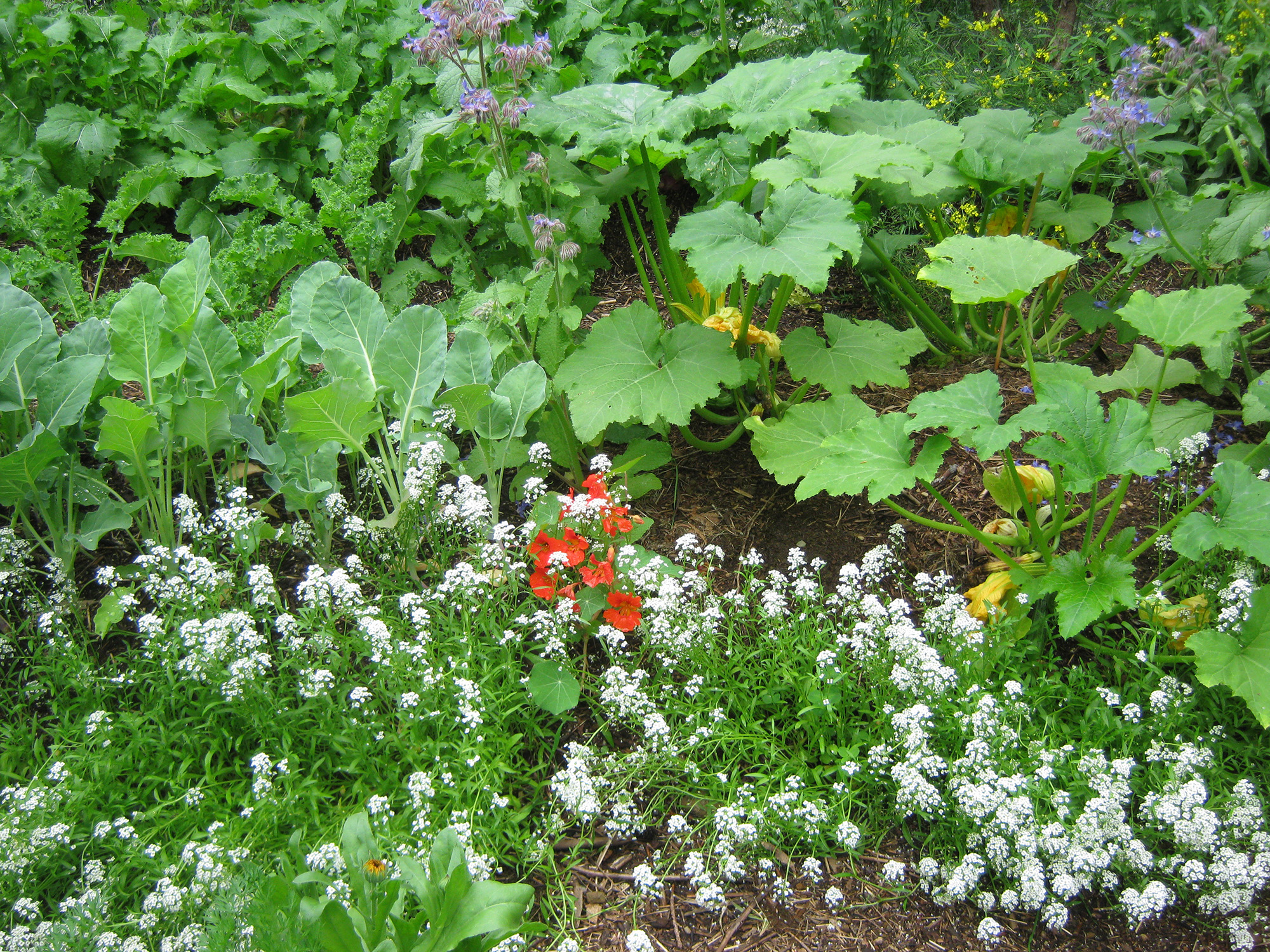To some, this principle might sound impossible. I mean, there’s always going to be some waste, right? Well, yes. Zero waste has more to do with your choices, rather than some magical way of making waste disappear into thin air.
The ideal situation in a permaculture system is that the waste produced by one area or aspect of a permaculture system can be reused in another area.
It doesn’t always work out perfectly, but that is the goal to shoot toward.
Let’s look at a few examples.
When we harvest our vegetables, there are always leftover greens, roots, stems, and damaged produce. Throwing them into the compost is the first and obvious choice. And it’s a good one. But is there something else we can do? Well, if you have animals, you can feed the excess to them.
Chickens love to pick over garden waste. And after they have picked it over, scratched it up, and pooped on it, it will be even better for the compost. Feeding scraps to pigs is a great way to convert them to tasty meat, as well as some nice manure to add to the compost.
And if you’re really wanting to convert those scraps into something other than compost for the garden, you can set up a biogas digester. These gizmos convert vegetative waste and manure into methane gas that you can use for cooking and heating. Coolness.
Voila, zero waste! But as you can see, there is waste, we have just dealt with it in a productive way.
When you’re building structures on your property, there are always leftover building materials. How can you use them for other purposes, so they don’t go into the landfill? Use your imagination, and I’m sure you can come up with some creative ways to use your scraps. And perhaps you could visit other construction sites and ask if you can recycle their waste. Never hurts to ask.
Animals always leave behind a trail – a literal trail – of waste. But that is really some permaculture gold you’ve got there. Don’t let it become a problem. Make sure you have good systems set up for cleaning out stalls, barns, and coops, and a way to process your animal waste – whether it’s into the compost or the biogas digester. Keep it simple, and keep is easy.
It seems that one of the hardest areas for us humans to practice zero waste is in our buying habits. Plastic wrapped crap, popped into a plastic bag, to be carried home, used for a while, and then thrown away. We see it all the time. The one that really gets me is when my organic produce is wrapped in plastic. Aaarrrggh.
We all buy plastic stuff. Sometimes it’s necessary: my medication comes in plastic bottles. I think the key is – and what I’m trying to do more and more – is to buy products with the longest life span. The longer we can keep things out of the landfill the better. Metal or glass instead of plastic when possible; reusable bags and containers when shopping; and just refusing to buy when it’s not necessary. It’s not easy, but all we can do is try.
I think we need to practice a different kind of shopping. We need to spend more time thinking about what we’re buying, instead of impulse buying.
The internet, big box stores, just stores, stores, stores everywhere – it’s no wonder we buy and buy and buy. We’ve been brainwashed into thinking that the next purchase will make us happy; the next thing we buy will be JUST what we need; and shopping ‘therapy’ will reduce stress. pppfffttt
Lately, I find myself buying less and less. I just don’t need much stuff. But I know when I get property of my own I’ll have to start making purchases, and I’m hoping that by then I’ll have some great shopping ‘skills’ in place, and will take my time to ensure that I get the right stuff for the job.
Waste happens. It’s what we do with the waste that will determine if it becomes a problem.
Zero waste, while an ideal goal, is hard to achieve. By building waste control procedures into your system so that dealing with it becomes part of your regular working day, it won’t build up and become overwhelming. Nothing wasted, nothing left behind.
What do you do to try to achieve that ‘zero waste’ goal? Please share your stories in the comments.
Health, Hope & Happiness
Tracy
